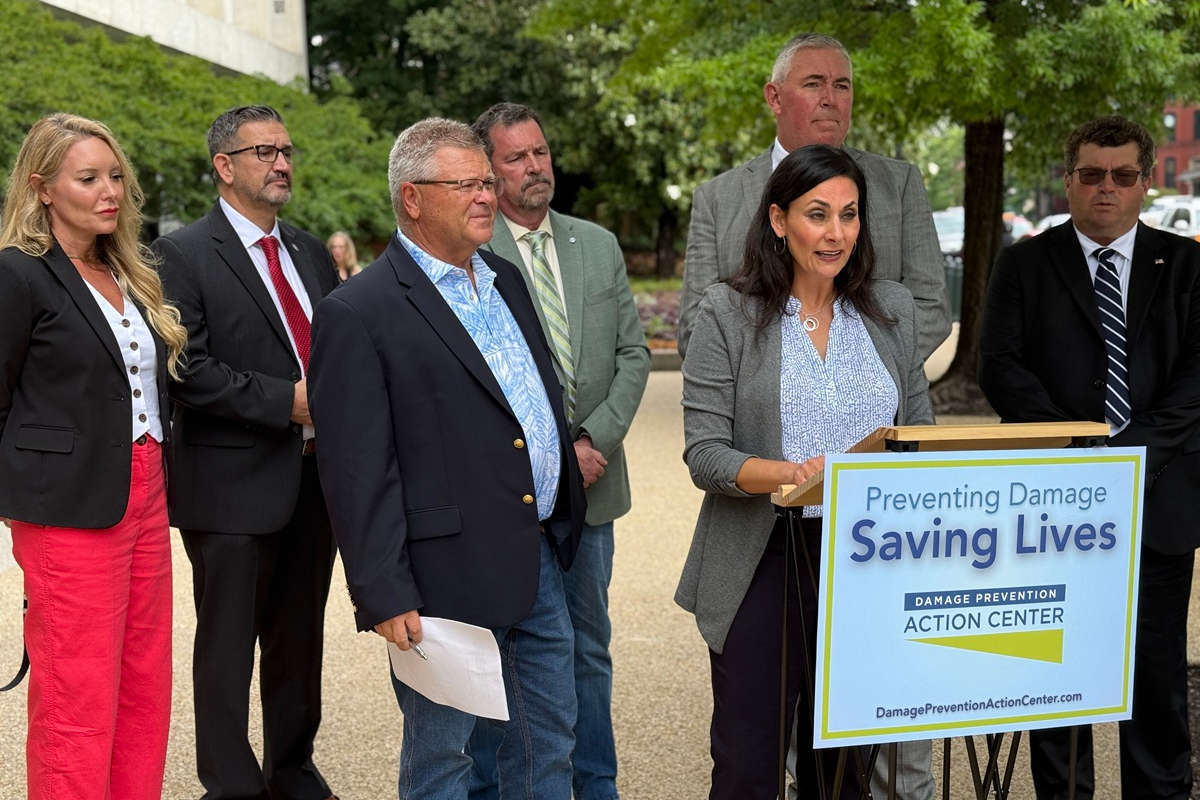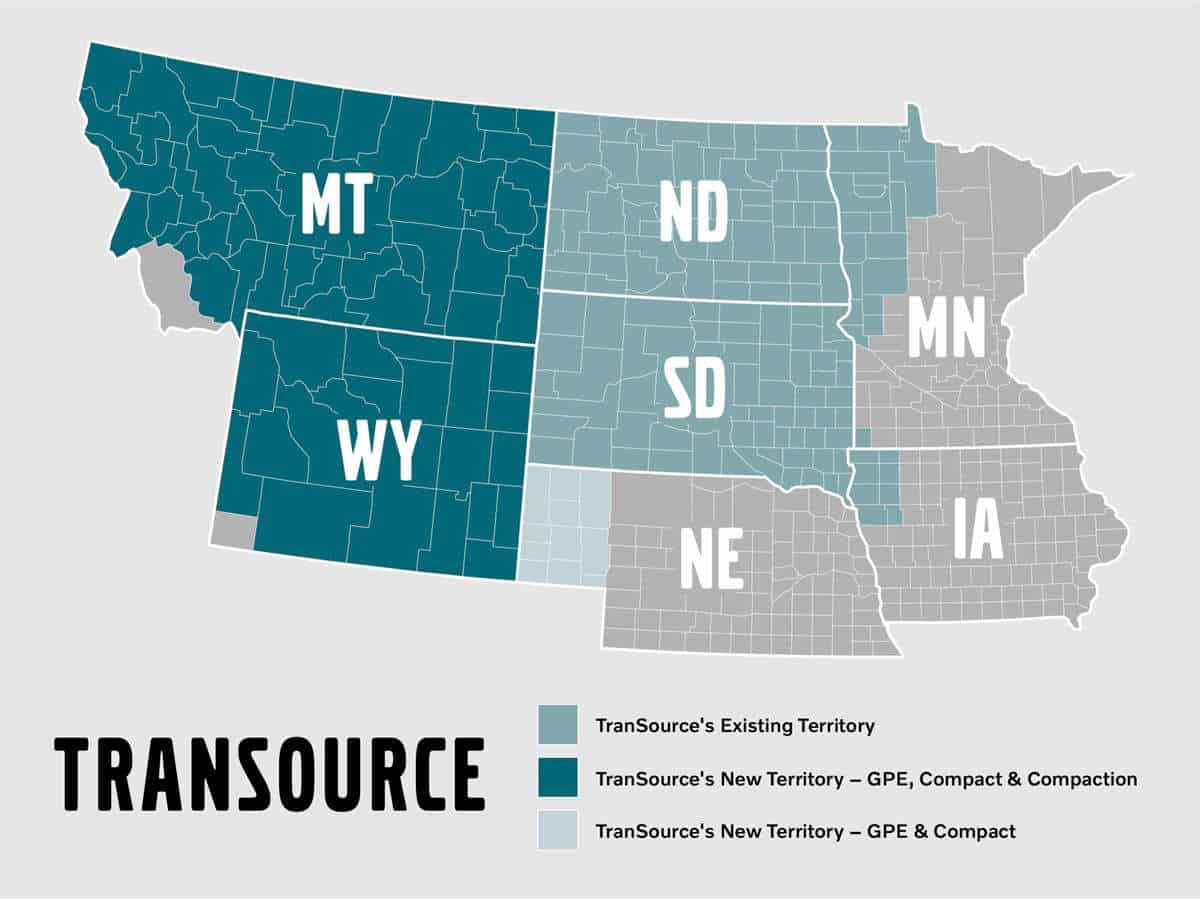Leaders Highlight Infrastructure Damage Issue on Capitol Hill

National experts held a press conference May 14 in the Hart Senate Office Building, highlighting solutions to the $30 billion in annual damage to critical buried infrastructure across America.
Leaders from the Damage Prevention Action Center (DPAC) – the national, non-partisan, non-profit advocacy organization working to protect buried utilities – explained the threat American communities face from nearly 200,000 yearly instances of damage to underground power, water, internet, and natural gas utility lines, including 911 outages, injuries, and fatalities.
Nearly 20 DPAC leaders from across the country spent several days on Capitol Hill this week meeting with members of Congress, their staffs, and Trump Administration agency leaders to discuss solutions to this damage.
“This is a problem impacting communities all across America, in every congressional district, and it’s one most people might never even think about,” said U.S. Rep. Darren Soto (FL-9), a member of the U.S. House Energy & Commerce Committee. “There are more than 20 million miles of buried utilities underneath our feet, and we have to make protecting that critical infrastructure a priority.”
“Nearly 200,000 times each year – once every three minutes – American communities are put at risk from damage to the buried utility infrastructure on which we all rely. Preventing this damage takes more than just contacting 811 before digging. It requires sound public policy,” added Sarah K. Magruder Lyle, Executive Director of the Damage Prevention Action Center. “We’re grateful to the members of Congress and the Trump Administration who have met with us to discuss common-sense policy solutions that protect America’s critical underground infrastructure, as well as those who live and work near these important assets.”
Among the solutions discussed was reintroduction of the Promoting Innovation in Pipeline Efficiency and Safety (PIPES) Act of 2023, a bill that had previously received strong bipartisan support in passing the House Transportation & Infrastructure Committee. The legislation provides an efficient, effective framework to advance the safety of energy infrastructure and buried utilities, but has not yet been reintroduced in the 119th Congress.
“Every day, our workers and American lives are risked by damage to buried utilities, whether caused by outdated utility maps, unmarked utility facilities, or a failure to follow nationally recognized best practices,” said Josh Hinrichs, President of utility engineering company UtiliSource, Board Director of the Damage Action Prevention Center, and a 20-year utility locator. “I’ve spent decades locating these critical utility assets. But I cannot emphasize enough how important it is for all stakeholders to do their part – so the system works for everyone. That’s why DPAC is working to educate federal, state, and local leaders about the importance of consistently enforced digging laws without special-interest carveouts.”
John Fluharty, a third-generation utility contractor with Troy Construction and member of the Damage Prevention Action Center, held up a broken section of natural gas line during the press conference, underscoring the high stakes of utility damage.
“This may just look like a piece of PVC pipe, but when this is struck during excavation, it can – and does – lead to injuries and even fatalities. That is real life,” said Fluharty. “It’s a reality not only for our crews working on jobsites, but for families, children, seniors, businesses, first responders, and others whose lives are disrupted by damage to buried utilities.”
As evidence of the potentially fatal consequences, a Missouri five-year-old was killed and his family was injured in April when an unmarked natural gas line was struck during utility work; Missouri is in the process of amending its state law and the NTSB has opened a federal investigation.
The issue’s timeliness was evident on Capitol Hill this week, with a U.S. House Transportation & Infrastructure Committee meeting on member priorities on Wednesday and a U.S. Senate Commerce Committee hearing on Pipeline Safety Reauthorization on Thursday.
Other data-driven policy priorities that DPAC members advocated for this week include:
- Ensuring effective, balanced enforcement of digging laws for all stakeholders, driving behavior change
- Removing special-interest exemptions for 811 notifications, reducing damages
- Incentivizing utility facility owner/operators to provide distributed real-time mapping and geospatial data to 811 centers in a timely fashion
- Requiring reporting of all utility damages to 811, to understand how and why damages occur, and
- Ensuring that laws allow effective implementation of CGA Best Practices




